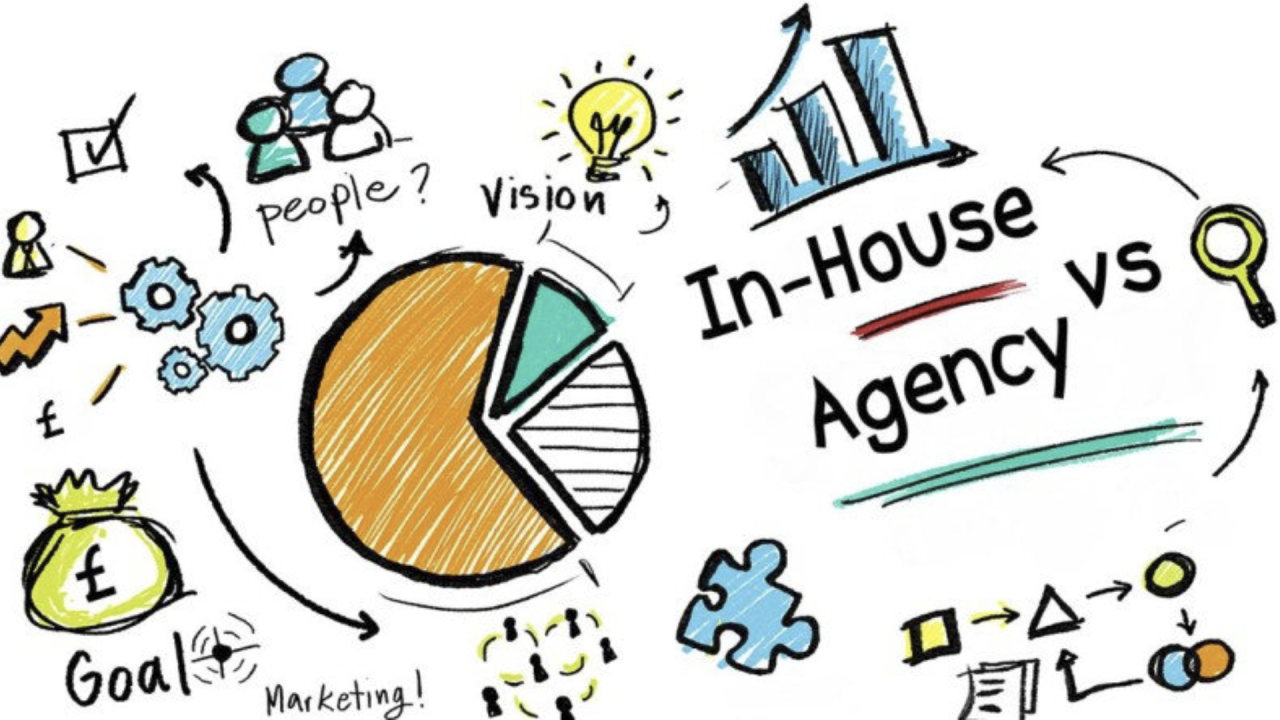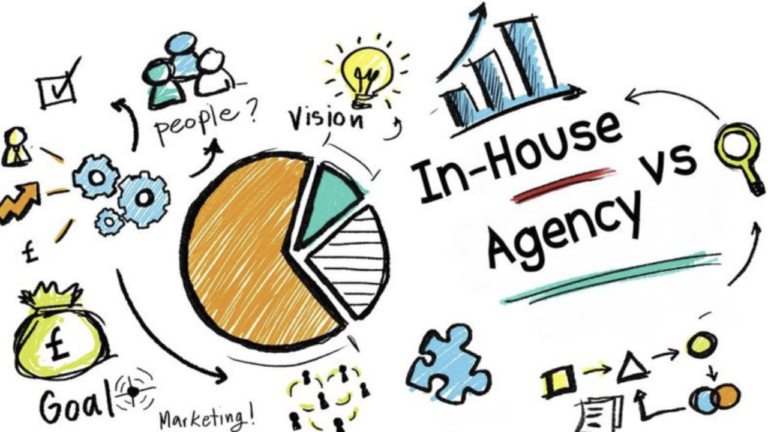In the dynamic landscape of modern business, corporations constantly seek ways to maximize efficiency, innovation, and ROI. One critical decision revolves around talent acquisition and management: should companies rely on agencies on a retainer basis, build in-house teams, or adopt a hybrid model? Let’s explore the advantages and disadvantages of each approach, considering cost, time, knowledge transfer, talent retention, strategy efficiencies, and overall ROI.
Advantages and Disadvantages of Agencies on Retainer, In-House Talent, and Hybrid Models
Agencies on Retainer:
Advantages:
Expertise: Agencies provide specialized skills and industry knowledge, bringing fresh perspectives and innovative solutions.
Scalability: Easy to scale services up or down based on project needs.
Flexibility: Agencies can quickly adapt to changing requirements and market conditions.
Disadvantages:
Cost: High retainer fees and potential additional costs for extra services.
Control: Less control over processes and timelines.
Communication: Potential for misunderstandings and delays due to external team dynamics.
In-House Talent:
Advantages:
Alignment: Deep understanding of company culture, values, and goals.
Control: Greater control over work processes and prioritization.
Commitment: In-house teams are more invested in the company’s success.
Disadvantages:
Cost: Significant fixed costs for salaries, benefits, and infrastructure.
Expertise: Limited to the skills of the existing team; costly and time-consuming to expand expertise.
Scalability: Slower to scale compared to external agencies.
Hybrid Model:
Advantages:
Balance: Combines the best of both worlds – specialized skills from agencies and deep company knowledge from in-house teams.
Flexibility: Greater adaptability to changing project demands and market conditions.
Cost Efficiency: Optimizes cost by leveraging external expertise when needed and maintaining a lean in-house team.
Disadvantages:
Coordination: Managing and integrating both in-house teams and external agencies can be complex.
Consistency: Ensuring consistent quality and alignment between in-house and agency work can be challenging.
Overhead: Potentially higher management overhead to coordinate hybrid efforts.
Cost Efficiencies
Agencies on Retainer: While agencies can be expensive, they offer predictable costs and eliminate the need for long-term commitments to employee salaries and benefits. However, the risk of escalating costs with additional services remains.
In-House Talent: High initial and ongoing fixed costs, including salaries, benefits, and office space. However, these costs may become more efficient over time with consistent project volume.
Hybrid Model: Offers a balance by leveraging in-house resources for core functions and agencies for specialized, variable tasks. This can optimize cost efficiency by avoiding overstaffing and utilizing expertise as needed.
Time Efficiencies
Agencies on Retainer: Agencies can start projects quickly due to their experience and ready resources, but coordination and communication can introduce delays.
In-House Talent: While initial onboarding and training take time, in-house teams benefit from quicker internal communication and decision-making processes over the long term.
Hybrid Model: Can optimize time efficiency by deploying the right resources for the right tasks, combining the agility of agencies with the swift decision-making of in-house teams.
Knowledge Transfer Efficiencies
Agencies on Retainer: Agencies bring in new knowledge but might not transfer all insights to the in-house team, risking a loss of critical information.
In-House Talent: Seamless knowledge transfer within the company, fostering continuous learning and retention of intellectual capital.
Hybrid Model: Facilitates knowledge exchange between in-house and external experts, enhancing overall organizational knowledge. However, effective integration mechanisms must be in place.
Talent Retaining Efficiencies
Agencies on Retainer: No direct talent retention for the company, as the expertise remains with the agency.
In-House Talent: Higher talent retention potential due to greater employee commitment and investment in company culture.
Hybrid Model: Can retain core in-house talent while accessing specialized skills from agencies. However, balancing retention efforts across both models requires strategic management.
Strategy Efficiencies
Agencies on Retainer: Agencies can offer strategic insights and innovation but may lack the deep contextual understanding of the company.
In-House Talent: In-house teams provide strategies deeply aligned with company goals and culture but might lack external perspectives.
Hybrid Model: Combines strategic depth from in-house teams with fresh, innovative approaches from agencies, optimizing strategic outcomes.
ROI Results
Agencies on Retainer: ROI can be high for short-term, specialized projects but may diminish with prolonged reliance and escalating costs.
In-House Talent: Potential for high ROI over the long term through sustained efforts and alignment with company goals, though initial costs are higher.
Hybrid Model: Offers potentially the highest ROI by combining cost-effective, strategic, and efficient elements from both in-house teams and agencies, ensuring a balanced and flexible approach to talent management.
Conclusion
The decision between hiring agencies on retainer, building in-house teams, or adopting a hybrid model depends on the specific needs, resources, and strategic goals of the organization. Agencies provide flexibility and specialized expertise, in-house teams offer deep alignment and control, and hybrid models balance both to optimize efficiency and ROI. By carefully evaluating the advantages and disadvantages of each approach, corporations can make informed decisions that drive sustainable growth and success.





